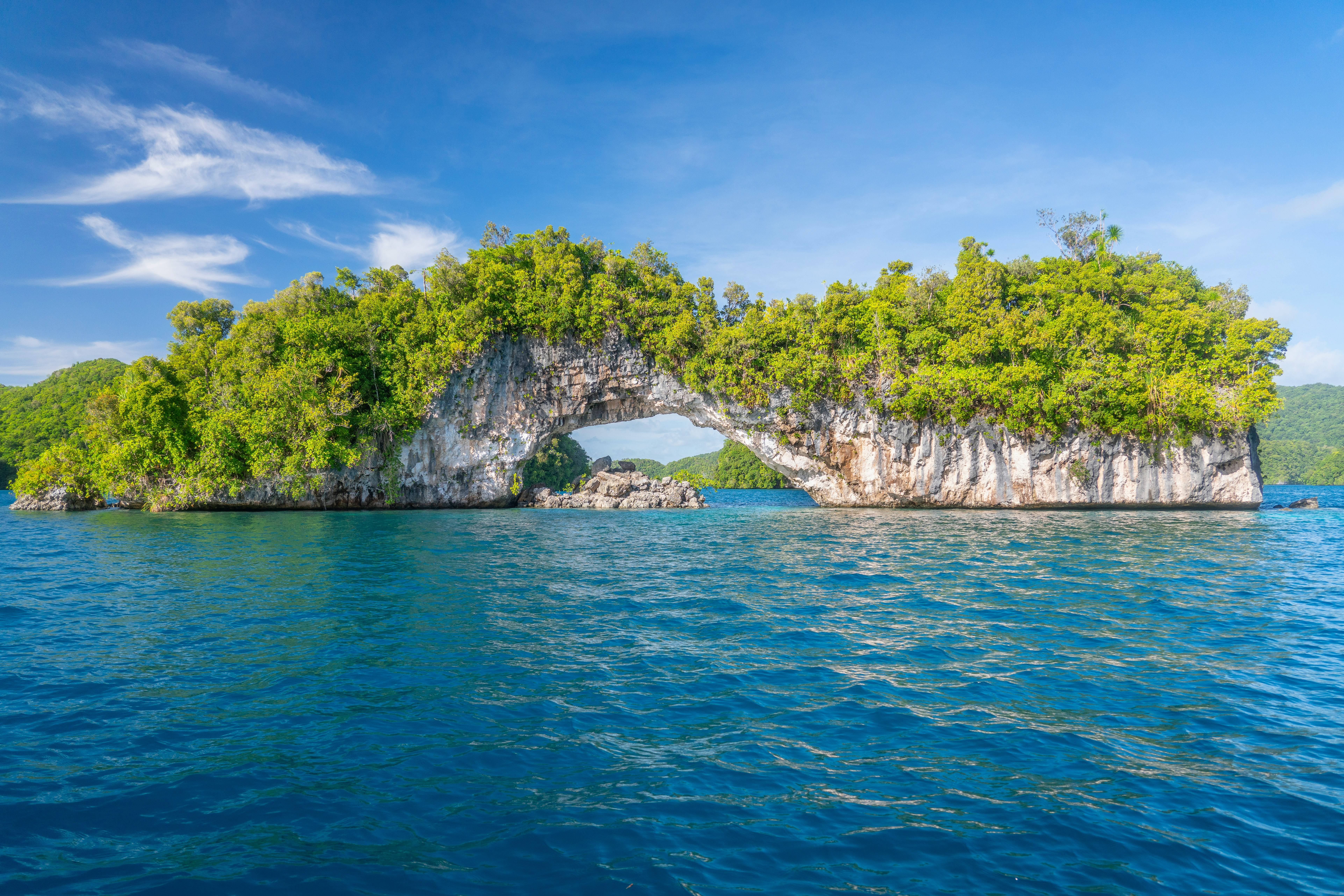
National SCP context and Connection to the Global Agenda: tourism and imports impacts
The Palau Development Plan 2023 - 2026 aims to significantly improve the quality of life for current and future generations of Palauans. This goal is supported by Palau's strong political commitment to the 2030 Agenda, using the National SDG Framework to better implement, monitor, and report on national priorities.[1] Palau launched its first Voluntary National Review report in 2019, which included SDG12, while incorporating 5 of its12 targets into the National SDG Framework. The Responsible Tourism Education Act of 2018[2] mandates businesses to educate visitors on tourism policies, promote reusable alternatives to single-use plastics and Styrofoam, and prohibit the use of reef-toxic sunscreen. Additionally, the government prepared the National Solid Waste Management Strategy and the Roadmap towards a Clean and Safe Palau 2017 - 2026[3]. In 2020, it enacted the Plastic Bag Use Reduction Law (RPPL 10-14) . 2 Palau also introduced the Palau Responsible Tourism Policy Framework 2017 - 2021 to reduce the tourism footprint on the environment while maximizing revenue.[4] Furthermore, the Palau Conservation Society Strategic Plan 2022 - 2027 focuses on ensuring people have relevant information and awareness for sustainable development and lifestyles in harmony with nature.[5]
Challenges
- With most products consumed in Palau being imported, the material footprint, including both production materials and fuel for importation, is rather high, further increased by the fuel for transporting recycled materials to overseas centers.[6]
- The country faces a growing e-waste problem and challenges in establishing an effective management system due to limited policy attention.[7]
- The country needs to cope effectively with the invasive weeds, posing high risks to Palau ecosystems and agricultural production
- Limited data availability restricts the understanding of sustainable consumption.5
- Despite efforts to restore taro patches and promote crops that are resistant to salt and drought, climate change continues to present challenges to food security.6
- Palau's reliance on tourism creates challenges because tourism is sensitive to external economic volatility. Tourism activities increase demand for fuel and food imports, making Palau vulnerable to global commodity price fluctuations.6
Priority sectors
- Waste management is a crucial sector in Palau, with the "3-R" (reduce, reuse, recycle) program diverting 51 percent of solid waste from landfills. The program includes composting, beverage container deposit redemption, a plastic-to-energy project, glass crafting, a scrap metal program, and tire shredding.6
- Enhancing the skills and support for farmers in Palau is a pressing priority to expand commercial production and ensure individual food security.
- Tourism initiatives include the “Palau Pledge”, the Responsible Tourism Education Act (which restricts the use of plastics and promotes reef-safe sunscreen), the levy of a “Pristine Paradise” environmental fee, and the “Green Fins” program.1
Opportunities
- Expanding the 3R initiative beyond Koror requires broader stakeholder engagement and sustained social marketing.6
- Promoting sustainable supply chains for e-waste and junked cars is crucial. Recycling efforts should expand to more products, supported by other "R" practices6 and circular economy initiatives to reduce the footprint.
- Supporting Palau's culture and tradition to promote sustainable consumption is important. Palau instills a conservation ethic in every child: "take only what you need, think always of tomorrow."6
- Promoting green practices throughout the tourism supply chain involves encouraging environmentally friendly initiatives at every stage of the tourism industry.
- Increasing agricultural production and employment opportunities within the food system to enhance food security and diversify the economy.1
[1] Republic of Palau. (2023). Palau Development Plan 2023 - 2026
[2] Republic of Palau. (2018). Responsible Tourism Education Act of 2018
[3] Republic of Palau. (2017). National Solid Waste Management Strategy: The Roadmap towards a Clean and Safe Palau 2017 to 2026
[4] Republic of Palau. (2026). Palau Responsible Tourism Policy Framework 2017 - 2021
[5] Republic of Palau. (2021). Palau Conservation Society Strategic Plan 2022 - 2027
[6] Republic of Palau. first Voluntary National Review report
[7] UN. (2024). The United Nations Common Country Analysis for the Micronesia Subregion 2024/25


